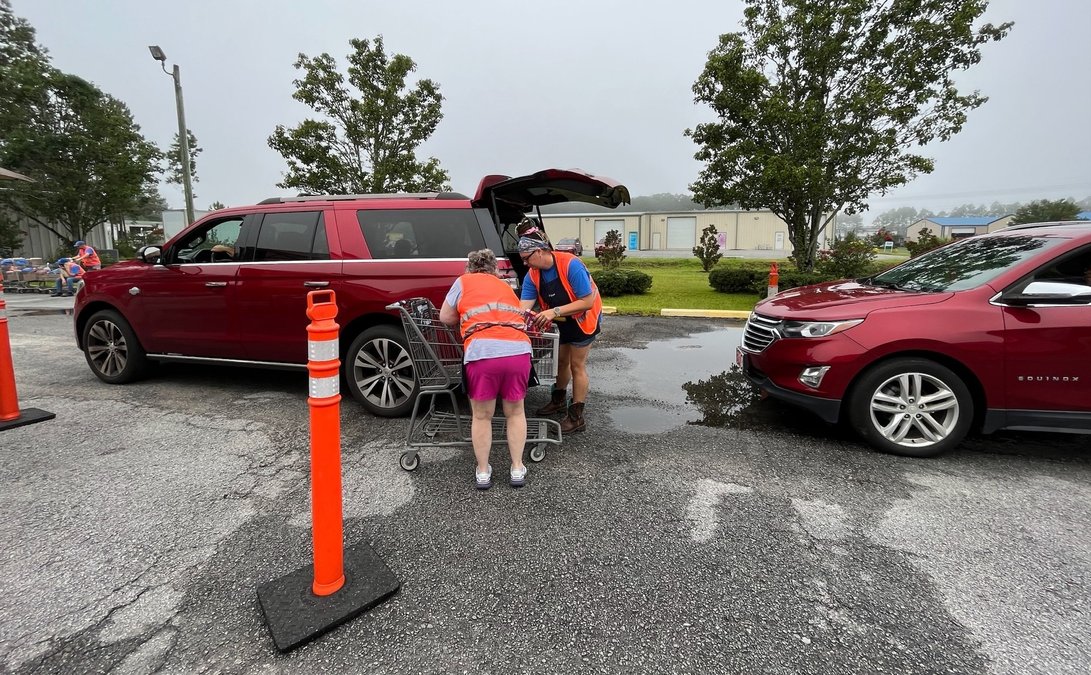The Springfield City Council approved a system that will allow city employees to adjust water rates in the event of a verified leak.
The decision to make adjustments because of leaks came after a resident, John English, approached the council about a leak in an underground pipe.
English was not present at the meeting Tuesday.
Councilman Max Neidlinger said English came to him with his concern, and he was not in a position to give English an answer concerning the problem.
“He had a problem with a water leak,” Neidlinger said. “At first he didn’t think it was his responsibility, and then he found out it was his responsibility, and he needs some help to overcome it because it is a pretty sizable amount for a water bill.”
Assistant City Clerk Amber Nettles said there had been an adjustment on the sewer portion of the bill, which is all city employees are allowed to do without council permission.
“We can adjust the sewer since we know there is a leak,” Public Works Director Lowell Morgan said. “Something you might want to consider when people have this type of break they use a lot of water, but under the tiered system we have, it’s expensive.
“Since some of this is obviously not intentional use of water we might go back and look at a flat rate system where we have cases like this, where we can verify we have a leak,” Morgan said. “We have done all that we can do for Mr. English based on the authority that you have given us.”
Councilman Dennis Webb said he would recommend adjusting the water bill when a leak is verified.
“The way they do that is they look at the two previous months actual water usage before the leak started, so they can determine the actual amount of the leak,” he said. “That leak part instead of being used on the tiered system the leak part only would be based on the lowest applicable water rate. Obviously when someone has a leak on their side of the meter it’s not intentional, we don’t need to be penalizing for that.”
Webb said the water department will determine if there is a leak and how much the leak was.
Councilman Kenny Usher asked under what types of circumstances the city would adjust water rates for a leak.
“How far are we going to go,” Usher said. “What if someone has a flapper valve stuck on their toilet?”
Webb said adjustments for leaks are something the city already does with sewer.
Nettles said the change in rate structure has prompted the need for water department employees to be able to do more in the event of a leak because before the tiered system adjusting the sewer rates made more of an impact on the bill.
“Now it doesn’t help as much because they’re getting charged that tiered rate system for all that water usage. It’s really hurtful,” she said.
Morgan told the council English’s leak was between the meter and the house. Nettles said until the pipe burst, English was unable to determine where the leak was.
Morgan said when the city installs all the new meters the city will be able to help prevent this.
“We will be able to run a test,” he said. “In doing a sample last year, it showed us a red dot to show a leak in that house. We pulled a history out of that meter, and it showed even at night when they were sleeping they were using 10 gallons of water an hour. We will be able to, once we get these meters in place, you can go back six months. You can look at water use minute by minute for six months.”
Councilman Charles Hinely said he did not think a loose flapper valve or a leaky faucet should be covered.
Webb said the only way the council could try to restrict it would be to require a leak of a particular amount before the leak will be adjusted.
Hinely said he thinks there should be an adjustment for residents who have no way of being able to detect a leak.
“If they don’t fix a faucet, that’s their responsibility,” Hinely said.
Webb said he agreed, but if someone has an upstairs bathroom they never use and the faucet starts leaking they may not know about it until they receive the water bill.
Usher said he thought the leaks that should be covered are those that could be considered “catastrophic.”
Webb said the only way to accomplish that would be to put a minimum amount of water loss due to the leak. He said the leak they were discussing was approximately 40,000 gallons.
Webb said he would recommend attempting the adjustments without a minimum, and if people abuse it to come back later and change it.
Nettles said this type of request is not common.
Usher said when the new meters are installed, the city could set up a notification system to alert residents to leaks they may not know about.








